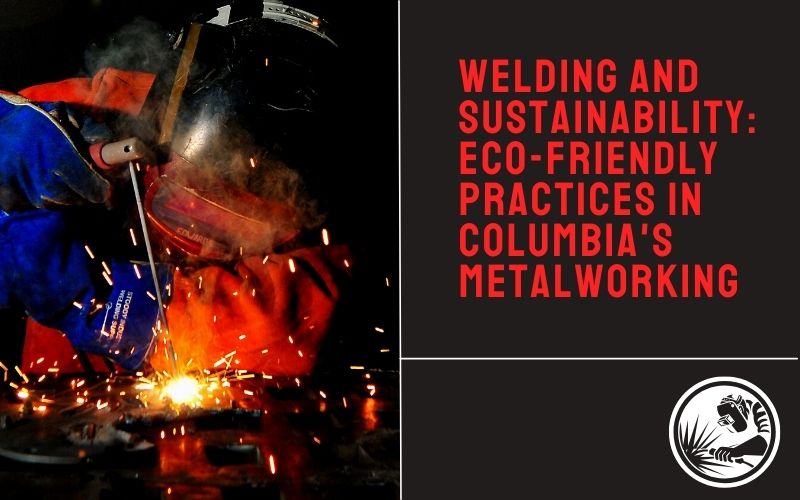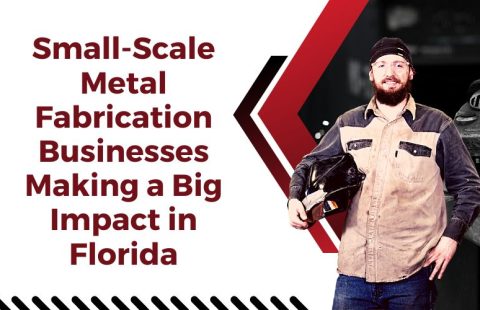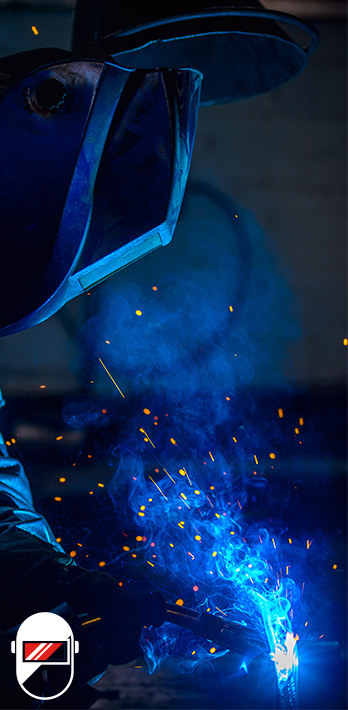
Welding and Sustainability: Eco-Friendly Practices in Columbia’s Metalworking
Industries across the globe are exploring ways to reduce their environmental impact and promote a greener future. One such industry that often goes unnoticed in this regard is metalworking, specifically welding. Welding plays a crucial role in various sectors, including construction, manufacturing, and infrastructure development.
In Columbia, there has been a notable change towards adopting sustainable practices in metalworking, contributing to a cleaner and more eco-friendly future.
What is Welding ?
It is a process of fabrication, involving the fusion of two or more metals through the application of heat, pressure, or a combination of both, resulting in a strong and permanent bond. It has paved the way for its usability in numerous applications, from small DIY projects to large-scale manufacturing structures.
How Welding Impacts the Environment?
Upon closer inspection, its environmental impact becomes apparent.
- The process releases metal fumes, posing a threat to air, land, water, and living beings.
- Additionally, the energy-intensive nature of welding raises concerns about its electricity source.
- Moreover, the disposal of consumables contributes to waste.
The Solution…..
- One of the key aspects of sustainable welding practices in Columbia is the use of advanced welding technologies. Traditional welding methods often lead to excessive energy consumption and emit harmful gases technologies, such as gas metal arc welding (GMAW) and laser beam welding (LBW), the industry has witnessed a significant reduction in energy consumption and emissions.
- GMAW, also known as MIG (Metal Inert Gas) welding, utilizes a shielding gas, typically argon or a mixture of argon and carbon dioxide, to protect the welding area from atmospheric contamination. This technology not only ensures high-quality welds but also decreases the release of harmful fumes into the atmosphere.
- Similarly, LBW utilizes a concentrated beam of light to create precise and efficient welds, eliminating the need for excessive heat or material consumption. These advanced welding technologies have become increasingly popular in Columbia, allowing metalworkers to achieve their goals while reducing their environmental impact.
- Another sustainable practice gaining traction in Columbia’s metalworking industry is the use of recycled materials. Metal fabrication often results in scrap metal, which is traditionally discarded or sent to landfills, contributing to waste accumulation. However, Columbia’s metalworkers have recognized the value in recycling these materials. By implementing recycling programs, metalworkers can reduce waste and conserve resources.
- Recycled metal not only reduces the demand for virgin materials but also requires less energy to process. This reduction in energy consumption translates to a significant reduction in greenhouse gas emissions. Furthermore, utilizing recycled metal in welding projects helps preserve natural resources and minimizes the need for mining and extraction, which can have detrimental effects on the environment. By incorporating recycled materials into their projects, Columbia’s metalworkers are actively contributing to a more sustainable and eco-friendly metalworking industry.
- Furthermore, the adoption of energy-efficient practices has played a vital role in promoting sustainability in Columbia’s metalworking sector. Energy-intensive processes, such as welding, can have a considerable impact on the environment if not managed effectively. To address this concern, metalworkers in Columbia have implemented energy-efficient measures, such as optimizing equipment usage, implementing energy management systems, and adopting renewable energy sources.
- By optimizing equipment usage, metalworkers ensure that welding machines are used only when necessary, minimizing idle time and reducing energy waste.
- Additionally, the implementation of energy management systems allows for better monitoring and control of energy consumption, identifying areas for improvement and reducing overall energy usage.
- Furthermore, the integration of renewable energy sources, such as solar or wind power, into welding operations helps minimize reliance on fossil fuels and reduces carbon emissions.
In steering toward a greener horizon, Columbia’s metalworking industry champions sustainability. Advanced welding technologies cut energy consumption and emissions, while the integration of recycled materials curbs waste. Implementing energy-efficient practices and renewable sources further diminishes our environmental footprint. As we weld for a sustainable tomorrow, Columbia’s metalworkers epitomize dedication to eco-friendly practices, forging a cleaner and more sustainable future.
So We Can Rightly Say ,
“Columbia’s metalworkers are not just crafting structures; they are crafting a legacy of sustainability. In the world of welding, each project becomes an opportunity to build a more eco-friendly future.”
In search of a reliable Welding Service in Columbia ? Your search ends here!
Rely on Mobifab for all your welding requirements.
Why choose our expertise?
Mobifab specializes in MIG and TIG welding across diverse industries, delivering quality, reliability, and precision. Our committed teams provide customized solutions and flexible approaches, ensuring timely and accurate metal fabrication designs with state-of-the-art tools.
Sustainable Welding Brilliance: Mobifab Crafts Green Innovations



